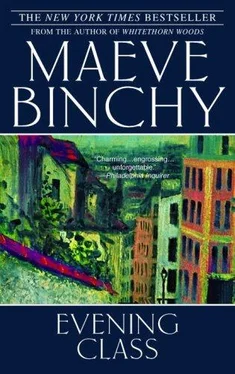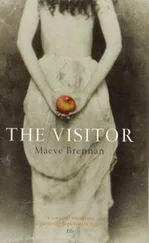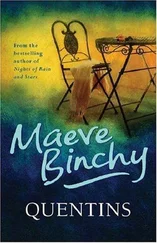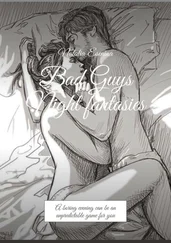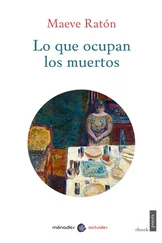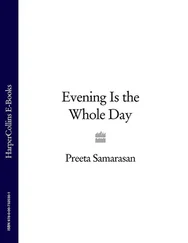Maeve Binchy - Evening Class
Здесь есть возможность читать онлайн «Maeve Binchy - Evening Class» весь текст электронной книги совершенно бесплатно (целиком полную версию без сокращений). В некоторых случаях можно слушать аудио, скачать через торрент в формате fb2 и присутствует краткое содержание. Жанр: Современная проза, на английском языке. Описание произведения, (предисловие) а так же отзывы посетителей доступны на портале библиотеки ЛибКат.
- Название:Evening Class
- Автор:
- Жанр:
- Год:неизвестен
- ISBN:нет данных
- Рейтинг книги:3 / 5. Голосов: 1
-
Избранное:Добавить в избранное
- Отзывы:
-
Ваша оценка:
- 60
- 1
- 2
- 3
- 4
- 5
Evening Class: краткое содержание, описание и аннотация
Предлагаем к чтению аннотацию, описание, краткое содержание или предисловие (зависит от того, что написал сам автор книги «Evening Class»). Если вы не нашли необходимую информацию о книге — напишите в комментариях, мы постараемся отыскать её.
Evening Class — читать онлайн бесплатно полную книгу (весь текст) целиком
Ниже представлен текст книги, разбитый по страницам. Система сохранения места последней прочитанной страницы, позволяет с удобством читать онлайн бесплатно книгу «Evening Class», без необходимости каждый раз заново искать на чём Вы остановились. Поставьте закладку, и сможете в любой момент перейти на страницу, на которой закончили чтение.
Интервал:
Закладка:
'I won't have company until you come back,' he said.
She held out her hand. 'I don't think I'll be back,' she said.
'No, well, let's agree never say never.' His grin was good-natured. He stood at the doorway as she walked down the road, her hands in the pockets of her jacket, her head down. She was lonely and lost. He wanted to run and swoop her back to him, but it was too soon.
And yet he had done what he had to do. There could have been no future for them at all if he had sat down behind Aidan's back and told the man's daughter what he didn't know himself. He wondered what a betting man would give as odds on her ever coming back to him. Fifty-fifty he decided.
Which were much more hopeful odds than anyone would get on whether the evening classes would succeed. That was a bet that no sane person would take. They were doomed before they even began.
SIGNORA
For years, yes years, when Nora O'Donoghue had lived in Sicily, she had received no letter at all from home. She used to look hopefully at il postino as he came up the little street under the hot blue sky. But there was never a letter from Ireland, even though she wrote regularly on the first of every month to tell them how she was getting on. She had bought carbon paper; it was another thing hard to describe and translate in the shop where they sold writing paper and pencils and envelopes. But Nora needed to know what she had told them already, so that she would not contradict herself when she wrote. Since the whole life she described was a lie, she might as well make it the same lie. They would never reply but they would read the letters. They would pass them from one to the other with heavy sighs, raised eyebrows and deep shakes of the head. Poor stupid headstrong Nora who couldn't see what a fool she had made of herself, wouldn't cut her losses and come back home.
'There was no reasoning with her,' her mother would say.
'The girl was beyond help and showed no remorse,' would be her father's view. He was a very religious man, and in his eyes the sin of having loved Mario outside marriage was greater far than having followed him out to the remote village of Annunziata even when he had said he wouldn't marry her.
If she had known that they wouldn't get in touch at all she would have pretended that she and Mario were married. At least her old father would have slept easier in his bed and not feared so much the thought of meeting God and explaining the Mortal Sin of his daughter's adultery.
But then she would not have been able to do that, because Mario had insisted on being upfront with them.
'I would love to marry your daughter,' he had said, with his big dark eyes looking from her father to her mother, backwards and forwards. 'But sadly, sadly it is not possible. My family want me very much to marry Gabriella and her family also want the marriage. We are Sicilians; we can't disobey what our families want. I'm sure it is very much the same in Ireland.' He had pleaded for an understanding, a tolerance and almost a pat on the head.
He had lived with their daughter for two years in London. They had come over to confront him. He had been in his own mind admirably truthful and fair. What more could they want of him?
Well, they wanted him gone from her life for one thing.
They wanted Nora to come back to Ireland and hope and pray that no one would ever know of this unfortunate episode in her life, or her marriage chances which were already slim would be further lessened.
She tried to make allowances for them. It was 1969, but then they did live in a one-horse town; they even thought coming up to Dublin was an ordeal. What had they made of their visit to London to see their daughter living in sin, and then accept the news that she would follow this man to Sicily?
The answer was they had gone into complete shock and did not reply to her letters.
She could forgive them. Yes, part of her really did forgive them, but she could never forgive her two sisters and two brothers. They were young; they must have understood love, though to look at the people they had married you might wonder. But they had all grown up together, struggled to get out of the lonely remote little town where they lived. They had shared the anxiety of their mother's hysterectomy, their father's fall on the ice which had left him frail. They had always consulted each other about the future, about what would happen if either Mam or Dad were left alone. Neither could manage. They had always agreed that the little farm would be sold and the money used to keep whoever it was that was left alive in a flat in Dublin somewhere adjacent to them all.
Nora realised that her having decamped to Sicily didn't suit that long-term plan at all. It reduced the helpforce by more than twenty per cent. Since Nora wasn't married the others would have assumed that she might take sole charge of a parent. She had reduced the helpforce by one hundred per cent. Possibly that was why she never heard from them. She assumed that they would write and tell her if either Mam or Dad was very ill, or even had died.
But then sometimes she didn't know if they would do that. She seemed so remote from them, as if she herself had died already. So she relied on a friend, a good kind friend called Brenda, who had worked with her in the hotel business. Brenda called from time to time to visit the O'Donoghues. It was not difficult for Brenda to shake her head with them over the foolishness of their daughter Nora. Brenda had spent days and nights trying to persuade, cajole, warn and threaten Nora about how unwise was her plan to follow Mario to his village of Annunziata and face the collective rage of two families.
Brenda would be welcome in that house because nobody knew she kept in touch and told the emigrant what was happening back home. So it was through Brenda that Nora learned of new nieces and nephews, of the outbuilding on the farm house, of the sale of three acres, and the small trailer that was now attached to the back of the family car. Brenda wrote and told her how they watched television a lot, and had been given a microwave oven for Christmas by their children. Well, by the children they acknowledged.
Brenda did try to make them write. She had said she was sure Nora would love to hear from them; it must be lonely for her out there. But they had laughed and said: 'Oh no, it wasn't at all lonely for Lady Nora who was having a fine time in Annunziata, living the life of Reilly with the whole place probably gossiping about her and ruining the reputation of all Irishwomen in front of these people.'
Brenda was married to a man whom they had both laughed at years back, a man called Pillow Case, for some reason they had all forgotten. They had no children and they both worked in a restaurant now. Patrick, as she now called Pillow Case, was the chef and Brenda was the manageress. The owner lived mainly abroad and was content to leave it to them. She wrote that it was as good as having your own place without the financial worries. She seemed content, but then perhaps she wasn't telling the truth either.
Nora certainly never told Brenda about how it had turned out; the years of living in a place smaller than the village she had come from in Ireland and loving the man who lived across the little piazza , a man who could come to visit her only with huge subterfuge, and as the years went on made less and less effort to try and find the opportunities.
Nora wrote about the beautiful village of Annunziata and its white buildings where everyone had little black wrought-iron balconies and filled them with pots of geraniums or Busy Lizzies, but not just one or two pots like at home, whole clusters of them. And how there was a gate outside the village where you could stand and look down on the valley. And the church had some lovely ceramics which visitors were coming to see more and more.
Читать дальшеИнтервал:
Закладка:
Похожие книги на «Evening Class»
Представляем Вашему вниманию похожие книги на «Evening Class» списком для выбора. Мы отобрали схожую по названию и смыслу литературу в надежде предоставить читателям больше вариантов отыскать новые, интересные, ещё непрочитанные произведения.
Обсуждение, отзывы о книге «Evening Class» и просто собственные мнения читателей. Оставьте ваши комментарии, напишите, что Вы думаете о произведении, его смысле или главных героях. Укажите что конкретно понравилось, а что нет, и почему Вы так считаете.
